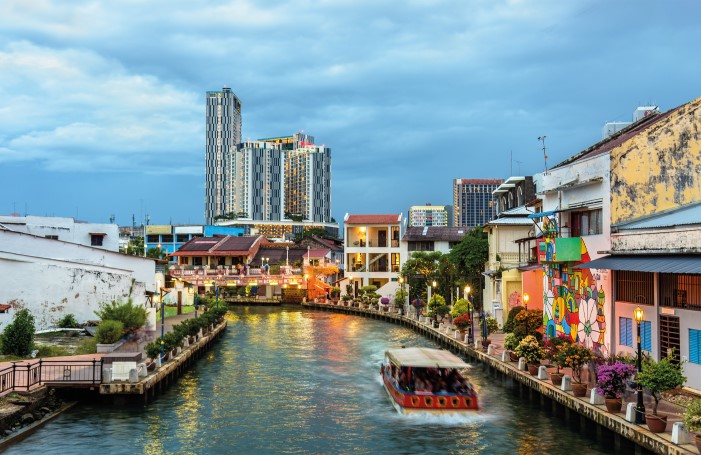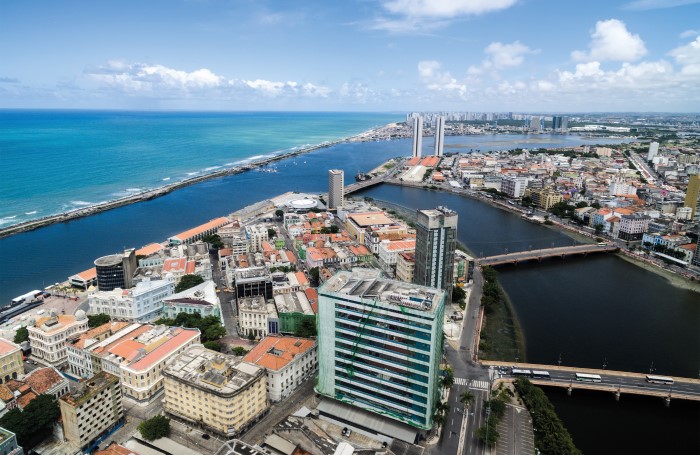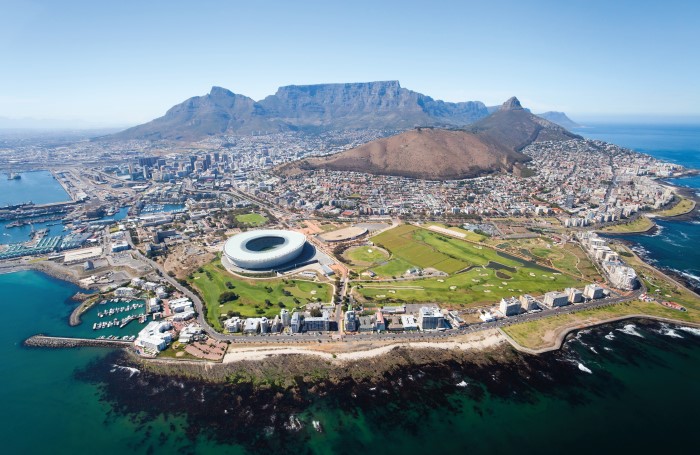Introduction
The final report on the UK Built Environment Advisory Group's engagement in the Foreign, Commonwealth & Development Office's Future Cities Programme can be found at the foot of this page.
Each year, across the world, tens of millions of people are moving from rural areas to towns and cities. Countries are urbanising. By 2050 the UN suggests that an additional 2.5 billion people will come to live in urban areas. Accommodating the newly urbanised will require a huge effort in city planning, building design, and construction. At the same time, the very countries and cities that are urbanising most rapidly are those with the fewest professionals to meet the challenge.
For example, Uganda has a population of over 45 million, and 6% of its population (over 2 ½ million people) are coming to live in an urban area each year. Yet there are only around 200 architects in the entire country. Compare that with the 45,000 architects in the UK, serving a population of around 68 million; a country in which the process of urbanisation is around 1% each year. Uganda is not alone: 95% of the world’s urbanisation is set to take place in Africa and Asia, often in countries with a critical lack of capacity to sustainably transition to an urban-based economy.
While well-designed buildings are essential to sustainable cities, it’s not just architectural expertise that is needed; urban planning, structural engineering, landscaping, and civil engineering are essential too. Without these, there’s a risk of unplanned, poorly designed urban centres with sub-standard housing and inadequate transport becoming home to billions more people
The challenge of urbanisation is one sustainability challenge among many, but it is one that the UK professional institutions can assist with. The UK Built Environment Advisory Group (UKBEAG) was launched in 2016 as a collaboration between the Royal Institute of British Architects, the Royal Town Planning Institute, the Institution of Structural Engineers, and the Landscape Institute, aiming to make built environment expertise more accessible to the governments, humanitarian agencies, and development partners who are at the sharp end of delivering sustainable urbanisation.

The Global Future Cities Programme
In 2015, the UK government’s Strategy and Strategic Defence and Security Review recognised that rapid urbanisation and climate change are increasingly causes of global instability. Providing technical assistance to cities now may help head-off future crises. The Global Future Cities Programme was created by the Foreign, Commonwealth & Development Office to do just that, by supporting 30 projects in transportation, urban planning and resilience in 19 cities in ten low- to middle-income countries in South America, Sub-Saharan Africa, and Southeast Asia.
Strategic Capacity Development
Recognising the professional expertise available, the UKBEAG was appointed to be the Strategic Capacity Development partner of the programme. This meant working in close partnership with UN-Habitat to deliver a Strategic Capacity Development programme. The programme sought to complement and use the work of the projects to:
- reduce the barriers to successful project implementation
- increase the impact and long term sustainability of the projects
- increase the potential for sharing and using learnings within the cities, countries, and beyond
- increase engagement and alignment with the 2030 UN Sustainable Development Goals (SDGs) and the New Urban Agenda
- create mutually beneficial economic relationships between UK professions and host cities in areas such as architecture and planning
The Strategic Capacity Development Programme ran from 2018 to 2022 and was delivered in two main phases, a Strategic Phase and an Implementation Phase.
During the Strategic Phase, the UKBEAG visited the cities of the programme to help understand the context, the factors that might help or hinder project delivery and the pre-existing professional capacity and market maturity.
Towards the end of the Strategic Phase, the UKBEAG hosted a week of 'Transition Training and Dialogue' at RIBA HQ in London. Over 40 senior city stakeholders joined us. The week was supported by a range of subject matter experts who helped to develop the stakeholders’ understanding of the wide range of issues at hand. Importantly, the week also provided an opportunity for city representatives to share their experiences and challenges, and to form a global cohort. Cities shared presentations, covering topics as diverse as managing drought in Cape Town, urban regeneration in Ankara, and creating smart cities in Malaysia.
The Implementation Phase was planned around a series of in-person, in-country events. However, like so many plans over the last three years, the pandemic hit, and the programme was rapidly adjusted. While there were undoubted downsides, not least being unable to meet city officials in person, there were new opportunities. Delivering the programme online allowed UKBEAG to introduce a wider range of topics and themes to the cities. The programme was reconfigured to deliver four series of online events:
- A thematic programme, exploring some of the central themes shared by the cities. The programme opened and closed with contributions from Sir Paul Collier CBE from the International Growth Centre and Mayor Marvin Rees from Bristol City Council. Central themes included:
- integrated and inclusive urban planning
- governance and collaboration
- project finance and procurement
- evidence-based design and the effective use of data
- implementation and enforcement
- monitoring and evaluation
- A city-to-city knowledge exchange series which aimed to enable cities to share their experiences, learn from each other, build relationships, and encourage city ownership of the wider programme.
- A series of country-level events in which city stakeholders engaged in a highly focused discussion about a topic of particular relevance. Where appropriate, these events were also used as an opportunity to connect with the national government. For example, the Malaysia country-level event included engagement with the country’s Ministry of Finance, while the event in the Philippines was co-hosted with the national Department of Human Settlement and Urban Development, and illustrated how the projects in Cebu City and New Clark City might become pilots for elements of the country’s National Housing Strategy.
- Two concluding regional leadership forums aimed to empower and encourage city stakeholders to build on the momentum achieved during the Global Future Cities Programme and to use the work done to help take on the broad and urgent challenges facing cities.
The Strategic Capacity Development Programme ran from late 2018 to early 2022, with over 20 events that attracted over 1,000 individual participants and was supported by over 40 subject matter experts. Feedback on the programme from participants has been strongly positive. Overall, those who engaged in the programme feel it has helped them address the pressing issues their cities face.

The future
The Global Future Cities Programme has been one of intense learning for all contributors and participants, not least the UKBEAG itself. Looking back, it’s clear that together, the UK Institutes offer something worthwhile and unique to the cities of the programme. Looking forward, it’s clear that there is potential for future engagement. The programme has demonstrated that:
- the UKBEAG can be a 'one-stop shop' for impartial, expert built environment advice for use by governments and development partners around the world
- the institutes have an opportunity to contribute to international development through capacity development
- the institutes can support the delivery of international, and UK foreign policy, priorities
- programmes like this can help to promote UK built environment expertise and strengthen national and global professional networks
- engagement with the FCDO Global Future Cities Programme has provided a rich two way learning experience; the UK has much to learn from other countries
The UKBEAG hopes to continue its work overseas and is grateful for the support received so far from members, the institutes, and a wide range of experts in delivering capacity development to support sustainable urbanisation.
Adrian Malleson and Peter Oborn
Downloadable resources
- UKBEAG Global Future Cities Programme - Final Report (PDF)
- UKBEAG Global Future Cities Programme - Executive Summary (PDF)










